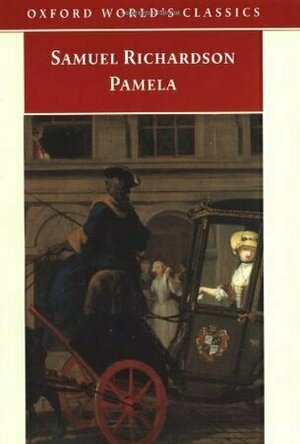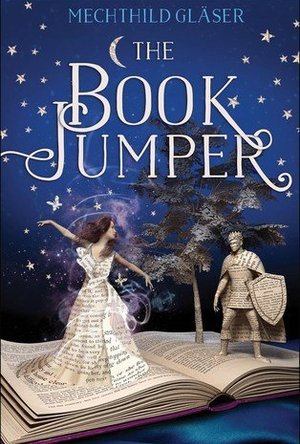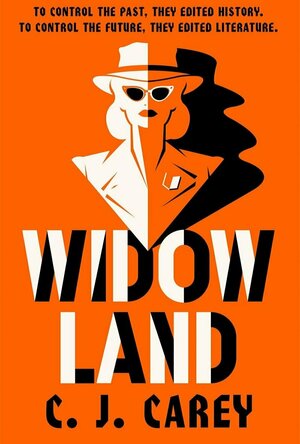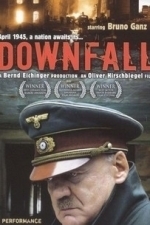Search
Search results
Erika (17789 KP) rated Pamela; or, Virtue Rewarded in Books
Feb 1, 2020
This novel is commonly known as the first true English novel, as well as the first epistolary novel. I've taken numerous British and English Literature classes, but had not been introduced to this novel until I studied in England and took an English novel class taught by a German professor who learned English solely so he could read Shakespeare in the vernacular. I'm glad that this prof included this wonderful novel. It was a nice change from just assigning Jane Eyre and Great Expectations.
It's an interesting study on Pamela, and spawned so many great, satirical novels. This is definitely a must read if you like classic literature and enjoy reading the novels that shaped the literature of today.
It's an interesting study on Pamela, and spawned so many great, satirical novels. This is definitely a must read if you like classic literature and enjoy reading the novels that shaped the literature of today.
Erika (17789 KP) rated The Book Jumper in Books
Apr 29, 2018
The premise of this novel was so good, who wouldn't want to jump into a book? Though, it did give me 'Inkheart' vibes from the very beginning.
I think that's why I found this book to be just ok. Basically, the opposite of Inkheart occurs, but I think Inkheart was better written. The problem with this book might have also been the translation from German.
Book Jumpers, in this novel, protect literature, but for some reason, someone's stealing ideas. Of course, you don't really know why until the very end. It was completely predictable and I came up with a better ending in my head.
I think that's why I found this book to be just ok. Basically, the opposite of Inkheart occurs, but I think Inkheart was better written. The problem with this book might have also been the translation from German.
Book Jumpers, in this novel, protect literature, but for some reason, someone's stealing ideas. Of course, you don't really know why until the very end. It was completely predictable and I came up with a better ending in my head.
ClareR (6074 KP) rated Valkyrie (2008) in Movies
Jun 23, 2019
Surprisingly good!
I will hold my hands up and admit that I can be very critical of films set in Germany and particularly during the Second World War. I’m a bit of a germanophile - I studied German language, literature and history at university. I read into the furore that surrounded the making of this film: the Germans didn’t want Tom Cruise to play the main part because of his affiliation with Scientology (Germans believe it’s a cult, and therefore want nothing to do with it), and Claus von Stauffenberg’s eldest son even asked Cruise to stand down from the role. They all had a rethink though, and decided that it was more important that this story was actually told. And I have to agree with them. There’s a belief that all Germans were complicit in the actions of Hitler and his National Socialists, but this isn’t true. What might be true, is that people were terrified that they would be killed for any opposing thoughts or actions - and they were right.
I was really surprised (pleasantly!) by Cruises acting in this. After my initial horror at the opening sequence where he was talking in German (my children asked if he would be speaking German throughout, and were fully prepared to go to bed early - they didn’t want to read subtitles for a whole movie, I didn’t want to hear the shocking pronunciation!😆), it really picked up! The British actors really made it for me (I could well be accused of bias, but well, I don’t care 🤷🏼♀️), and Eddie Izzard was the most surprising - I really need to stop being surprised that he can act well!
It’s a good film! We had a good family film night anyway, and I think it’s worth watching.
I was really surprised (pleasantly!) by Cruises acting in this. After my initial horror at the opening sequence where he was talking in German (my children asked if he would be speaking German throughout, and were fully prepared to go to bed early - they didn’t want to read subtitles for a whole movie, I didn’t want to hear the shocking pronunciation!😆), it really picked up! The British actors really made it for me (I could well be accused of bias, but well, I don’t care 🤷🏼♀️), and Eddie Izzard was the most surprising - I really need to stop being surprised that he can act well!
It’s a good film! We had a good family film night anyway, and I think it’s worth watching.
Widowland is a really atmospheric thriller, set in an alternate timeline - one where the German National Socialists and the British reach a compromise in 1940 and become the Grand Alliance. This alliance reads more like occupation though. Britain doesn’t have it’s own government, all laws come from Germany, and Britain is ruled by a German, the Protector, Alfred Rosenberg.
Even though there’s a huge shortage of young men (they’ve been ‘shipped off’ to the rest of occupied Europe to ‘work’) and women greatly outnumber men, women are divided into categories, or castes. These depend on their age, heritage, reproductive status and physical characteristics, and each category is named after a significant woman in Hitlers life. Rose is a Geli, one of the elite. Young, beautiful, and most importantly, fertile.
I thoroughly enjoyed this and read it far too quickly. It had a black and white, 1950’s movie atmosphere about it, and I could easily picture the people and scenes in my head. It brought to mind The Man in the High Castle with regards to Occupation, and 1984 with regards to feeling as though you’re constantly watched - as well as the people being told how to react, think and live. This was especially evident in Rose’s job: she rewrites classics so that they’re in line with the regimes ideals: so no independent, strong females, and all the male leads are changed to Sturmbannführer (at least!).
The drudgery of everyday life made me think of how I envisaged life in the GDR - as well as only allowing state sanctioned literature, there was only one radio channel in Grand Alliance Britain, with some brave people listening to illegal foreign radio stations, knowing that this could result in extreme punishment.
When Rose goes to Widowland near Oxford (there are a few throughout the country) to find the source of a potential rebellion, she’s shocked to see older women living in abject poverty, only permitted to eat a subsistence diet and work menial jobs. But these women are intelligent, and they’re not happy in their state regulated lives. Between her reading of classic books and meeting these women, Rose begins to see what’s wrong with the world she has been living in, and this dawning realisation is so well described. We see how reading ‘subversive’ classics seems to get under her skin, and how she realises that the treatment of women is wrong in this Grand Alliance.
I could go on and on. I raced through this book, and I loved the ending, which came far too quickly!
Many thanks to Quercus for my copy of this book through NetGalley.
Even though there’s a huge shortage of young men (they’ve been ‘shipped off’ to the rest of occupied Europe to ‘work’) and women greatly outnumber men, women are divided into categories, or castes. These depend on their age, heritage, reproductive status and physical characteristics, and each category is named after a significant woman in Hitlers life. Rose is a Geli, one of the elite. Young, beautiful, and most importantly, fertile.
I thoroughly enjoyed this and read it far too quickly. It had a black and white, 1950’s movie atmosphere about it, and I could easily picture the people and scenes in my head. It brought to mind The Man in the High Castle with regards to Occupation, and 1984 with regards to feeling as though you’re constantly watched - as well as the people being told how to react, think and live. This was especially evident in Rose’s job: she rewrites classics so that they’re in line with the regimes ideals: so no independent, strong females, and all the male leads are changed to Sturmbannführer (at least!).
The drudgery of everyday life made me think of how I envisaged life in the GDR - as well as only allowing state sanctioned literature, there was only one radio channel in Grand Alliance Britain, with some brave people listening to illegal foreign radio stations, knowing that this could result in extreme punishment.
When Rose goes to Widowland near Oxford (there are a few throughout the country) to find the source of a potential rebellion, she’s shocked to see older women living in abject poverty, only permitted to eat a subsistence diet and work menial jobs. But these women are intelligent, and they’re not happy in their state regulated lives. Between her reading of classic books and meeting these women, Rose begins to see what’s wrong with the world she has been living in, and this dawning realisation is so well described. We see how reading ‘subversive’ classics seems to get under her skin, and how she realises that the treatment of women is wrong in this Grand Alliance.
I could go on and on. I raced through this book, and I loved the ending, which came far too quickly!
Many thanks to Quercus for my copy of this book through NetGalley.
RəX Regent (349 KP) rated Downfall (Der Untergang) (2004) in Movies
Feb 19, 2019
The true story of the last days of NAZI Germany, focusing on Hitler and his cohorts as they sought refuge on his Berlin Bunker and is chronicled here with such honesty.
Told in a straight forward manner, we are given a portrait of not only Adolf Hitler himself, played perfectly by Bruno Ganz, who manages to humanize him without ever apologising for his heinous acts, but also those close to him. Shown through the young eyes of his final secretary, Traudl Junge (Alexandra Maria Lara), we are given a picture of what The Third Reich was to those who believed in it as well as what it had become for those who would suffer at it bloody hands.
Directed by Hirschbiegel to put us, the audience in the anterooms with these monsters, we are placed into a complex environment, edgy, atmospheric and most of all, real, as we witness noble acts of patriotism, conscience and pure, despicable horror, none less so that Magda Geobells, with the full consent of her husband, Joseph, first drugging, then murdering their six children as they slept, rather than “let them live in a world without national socialism.”
The only redeeming factors were their eventual suicides and in terms of the film, their first rate performances throughout this harrowing scene. Corinna Harfouch, who portrays Magda manages to portray this evil woman yet convey the emotion which was subdued deep beneath the surface. No small feat to allow such a fleeting glimpse of humanity during such and inhuman act.
But the same must be said Bruno Ganz, who manages to portray Hitler with such humanity; whilst showing us the true nature of his monstrosities, highlighting that the REAL monsters live among us and can seduce us at any time, any where, especially when we are vulnerable.
During one of the film’s early scenes, Hitler and Albert Speer (Heino Ferch), his Armaments Minister, discussing his vision for The Third Reich as he looks over a model of the new Germany which would be built after he won the war, a Germany without department stores, instead focusing on art, literature and culture.
Surely a noble goal, but as we all know, this cultural hub would have been built at an unacceptable cost, mainly with the blood of those who Hitler and his cohorts deemed to be inferior.
This is one of many clever methods used to convey a fair portrait of Hitler and The Third Reich. To demonstrate how bad they were, you first have to show impartiality, pointing out the good in what they do, play devil’s advocate as it were. Because whether we like it or not, evil motives are often built upon decent goals.
But as this film demonstrates, as Hitler shows his destine for anyone, even his own people, who will not give their lives for HIS vision of Germany, his Third Reich was being eaten away by a cancer of his own making, a Germany rotting from the very top.
Downfall is without a doubt one of the best World War 2 films which I have ever seen, delivering a compelling and immersive look behind the scenes of one of the most important defeats in modern history.
But being British and having to follow this with subtitles, which was great as watching this in its native German only adds to the experience, it can be a bit difficult to keep up with every plot machination, as we spend two and half hours reading about troop deployments, tactics and the philosophy of the Third Reich as we are presented with such atmospheric work, but if you can keep up with but the text and visuals, this is one hell of an education for those who do not know and an immersive masterpiece for those who follow WW2 history.
Told in a straight forward manner, we are given a portrait of not only Adolf Hitler himself, played perfectly by Bruno Ganz, who manages to humanize him without ever apologising for his heinous acts, but also those close to him. Shown through the young eyes of his final secretary, Traudl Junge (Alexandra Maria Lara), we are given a picture of what The Third Reich was to those who believed in it as well as what it had become for those who would suffer at it bloody hands.
Directed by Hirschbiegel to put us, the audience in the anterooms with these monsters, we are placed into a complex environment, edgy, atmospheric and most of all, real, as we witness noble acts of patriotism, conscience and pure, despicable horror, none less so that Magda Geobells, with the full consent of her husband, Joseph, first drugging, then murdering their six children as they slept, rather than “let them live in a world without national socialism.”
The only redeeming factors were their eventual suicides and in terms of the film, their first rate performances throughout this harrowing scene. Corinna Harfouch, who portrays Magda manages to portray this evil woman yet convey the emotion which was subdued deep beneath the surface. No small feat to allow such a fleeting glimpse of humanity during such and inhuman act.
But the same must be said Bruno Ganz, who manages to portray Hitler with such humanity; whilst showing us the true nature of his monstrosities, highlighting that the REAL monsters live among us and can seduce us at any time, any where, especially when we are vulnerable.
During one of the film’s early scenes, Hitler and Albert Speer (Heino Ferch), his Armaments Minister, discussing his vision for The Third Reich as he looks over a model of the new Germany which would be built after he won the war, a Germany without department stores, instead focusing on art, literature and culture.
Surely a noble goal, but as we all know, this cultural hub would have been built at an unacceptable cost, mainly with the blood of those who Hitler and his cohorts deemed to be inferior.
This is one of many clever methods used to convey a fair portrait of Hitler and The Third Reich. To demonstrate how bad they were, you first have to show impartiality, pointing out the good in what they do, play devil’s advocate as it were. Because whether we like it or not, evil motives are often built upon decent goals.
But as this film demonstrates, as Hitler shows his destine for anyone, even his own people, who will not give their lives for HIS vision of Germany, his Third Reich was being eaten away by a cancer of his own making, a Germany rotting from the very top.
Downfall is without a doubt one of the best World War 2 films which I have ever seen, delivering a compelling and immersive look behind the scenes of one of the most important defeats in modern history.
But being British and having to follow this with subtitles, which was great as watching this in its native German only adds to the experience, it can be a bit difficult to keep up with every plot machination, as we spend two and half hours reading about troop deployments, tactics and the philosophy of the Third Reich as we are presented with such atmospheric work, but if you can keep up with but the text and visuals, this is one hell of an education for those who do not know and an immersive masterpiece for those who follow WW2 history.
Sophia (Bookwyrming Thoughts) (530 KP) rated Becoming Darkness in Books
Jan 23, 2020
<b><i>I received this book for free from Publisher in exchange for an honest review. This does not affect my opinion of the book or the content of my review.</i></b>
Never have I ever read a book in which Hitler won World War II and succeeded in taking over the world.
Until now. I admit I'm a little fond of this one because of the whole alternative history thing going on right there, but I'm a little disturbed here, Lindsay Francis Brambles. You're as bad as Agatha Christie and came very close to killing everyone. Although technically, you did kill most of the characters that I grew fond of. Not cool. I don't think I can ever forgive you for this transgression of Trigger Happy Book. (More like Explosion Happy Book.)
But in the very long run, I only liked <i>Becoming Darkness</i> for a few things.
Sadistic as it may be, I did like how Brambles made Hitler won the second world war and unleashed a virus that made a lot of people turn into vampires all of that is told within the first few pages. Although the origins of Gemorrah (le virus) is revealed throughout the story and integrated in the plot, I still don't understand how the creators came up with that name in the first place. Does it mean something in German, or is it something they thought sounded sinister and cool and decided to go with it? In my humble opinion, it does not sound cool or sinister. It sounds like a Mary Poppins word.
I also really liked how Brambles didn't go completely off course from history there are some references to the war, there might be another significant historical figure who makes a cameo appearance (under a different name, but don't quote me), etc. Basically, there's not much that's thrown in completely off kilter aside from maybe the virus I still feel fishy about that.
Sophie Harkness does not take BS when there are boys hitting on her in the stupidest, cheesiest ways. Namely: "We're meant for one another because you're a girl, I'm a guy, and we have the parts to create phenomenal offspring." Sorry for the disturbing image, but that was very much implied by the character. Unfortunately for her, she sort of believes in love at first sight when she first met Val back when she was fourteen.
Sophie is also not a judgmental character she's very open-minded and believes vampires aren't exactly sinister blood sucking creatures. Every other Immune, those who can't get Gemorrah, are so judgmental and narrow-minded, it just peeves me greatly. It IS understandable, though, considering the year Brambles sets the book in.
Unfortunately, I didn't really like the whole flashbacks. For awhile in the beginning, it's a little confusing and I had to backtrack to make sure it was a flashback and not actually set in the present day. There's a "sort-of" warning and then we're in flashback mode that feels like it's set in the present but is really Sophie telling a story. On the bright side, all those flashbacks (and the journal entries written by Sophie's mom) all play a relevant role in the overall plot.
I also didn't really like Valentine. Though I eventually warmed up to him over the course of the book, something about him was really disturbing. He's not an annoying "stalker type" of character, but it IS a little weird he still tried to keep his connections to Sophie's family from grandma to mom to Sophie in the hopes of falling in love again. But considering the fact he's doesn't throw out stupidly cheesy lines at Sophie, I like him a little.
Have I mentioned I'm sick and tired of seeing the name Valentine over and over again in literature? We just can't get any more original than St. Valentine, can we?
I would totally summarize <i>Becoming Darkness</i> in a few words if only I didn't end up giving major spoilers. But in a nutshell, the book quite literally tells me all of us should be downright grateful the Third Reich didn't succeed. It also told me I'm royally screwed if the way to a man's heart is through his stomach, but I think I've established that in sixth grade with the whole Ramen Noodle Stove catastrophe.
<a href="https://bookwyrmingthoughts.com/arc-review-becoming-darkness-by-lindsay-francis-brambles/"; target="_blank">This review was originally posted on Bookwyrming Thoughts</a>
Never have I ever read a book in which Hitler won World War II and succeeded in taking over the world.
Until now. I admit I'm a little fond of this one because of the whole alternative history thing going on right there, but I'm a little disturbed here, Lindsay Francis Brambles. You're as bad as Agatha Christie and came very close to killing everyone. Although technically, you did kill most of the characters that I grew fond of. Not cool. I don't think I can ever forgive you for this transgression of Trigger Happy Book. (More like Explosion Happy Book.)
But in the very long run, I only liked <i>Becoming Darkness</i> for a few things.
Sadistic as it may be, I did like how Brambles made Hitler won the second world war and unleashed a virus that made a lot of people turn into vampires all of that is told within the first few pages. Although the origins of Gemorrah (le virus) is revealed throughout the story and integrated in the plot, I still don't understand how the creators came up with that name in the first place. Does it mean something in German, or is it something they thought sounded sinister and cool and decided to go with it? In my humble opinion, it does not sound cool or sinister. It sounds like a Mary Poppins word.
I also really liked how Brambles didn't go completely off course from history there are some references to the war, there might be another significant historical figure who makes a cameo appearance (under a different name, but don't quote me), etc. Basically, there's not much that's thrown in completely off kilter aside from maybe the virus I still feel fishy about that.
Sophie Harkness does not take BS when there are boys hitting on her in the stupidest, cheesiest ways. Namely: "We're meant for one another because you're a girl, I'm a guy, and we have the parts to create phenomenal offspring." Sorry for the disturbing image, but that was very much implied by the character. Unfortunately for her, she sort of believes in love at first sight when she first met Val back when she was fourteen.
Sophie is also not a judgmental character she's very open-minded and believes vampires aren't exactly sinister blood sucking creatures. Every other Immune, those who can't get Gemorrah, are so judgmental and narrow-minded, it just peeves me greatly. It IS understandable, though, considering the year Brambles sets the book in.
Unfortunately, I didn't really like the whole flashbacks. For awhile in the beginning, it's a little confusing and I had to backtrack to make sure it was a flashback and not actually set in the present day. There's a "sort-of" warning and then we're in flashback mode that feels like it's set in the present but is really Sophie telling a story. On the bright side, all those flashbacks (and the journal entries written by Sophie's mom) all play a relevant role in the overall plot.
I also didn't really like Valentine. Though I eventually warmed up to him over the course of the book, something about him was really disturbing. He's not an annoying "stalker type" of character, but it IS a little weird he still tried to keep his connections to Sophie's family from grandma to mom to Sophie in the hopes of falling in love again. But considering the fact he's doesn't throw out stupidly cheesy lines at Sophie, I like him a little.
Have I mentioned I'm sick and tired of seeing the name Valentine over and over again in literature? We just can't get any more original than St. Valentine, can we?
I would totally summarize <i>Becoming Darkness</i> in a few words if only I didn't end up giving major spoilers. But in a nutshell, the book quite literally tells me all of us should be downright grateful the Third Reich didn't succeed. It also told me I'm royally screwed if the way to a man's heart is through his stomach, but I think I've established that in sixth grade with the whole Ramen Noodle Stove catastrophe.
<a href="https://bookwyrmingthoughts.com/arc-review-becoming-darkness-by-lindsay-francis-brambles/"; target="_blank">This review was originally posted on Bookwyrming Thoughts</a>





